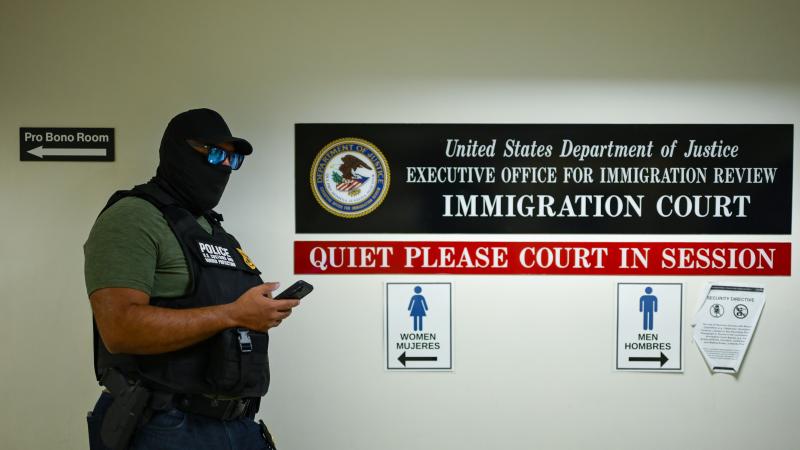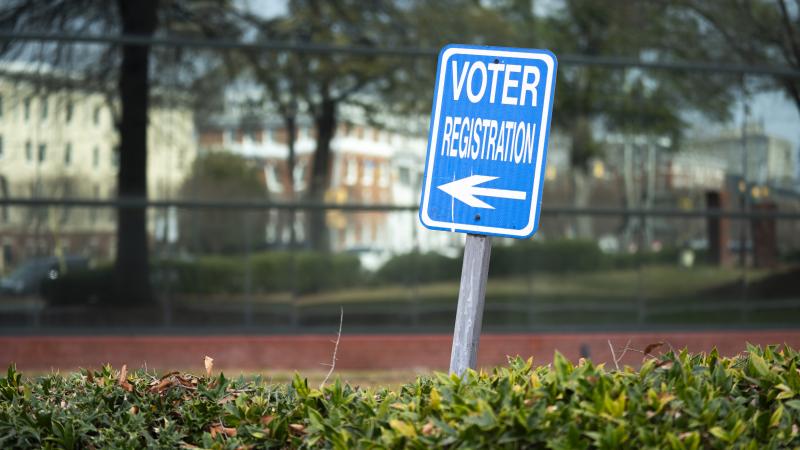Trump administration wants to revolutionize AI's integration into education with 'watchful guidance'
The White House AI Education Task Force aims to equip American youth with the skills needed for an AI-driven future, fostering innovation and economic competitiveness through education reform and public-private collaboration.
On Thursday, First Lady Melania Trump announced historic partnerships and initiatives to bring the power of artificial intelligence (AI) into the education space, revolutionizing the relationship between traditional education and the technology that many have worried will require aggressive oversight. She made it clear that that oversight, or "watchful guidance", will be ever-present as parents navigate the world of AI that their children may be exploring while learning.
Recognizing the dangers of allowing AI to flourish without boundaries, she warned, "During this primitive stage, it is our duty to treat AI as we would our own children — empowering, but with watchful guidance."
The second meeting of the White House Task Force on Artificial Intelligence Education was attended by cabinet members, educators and CEOs from companies like Microsoft, IBM and OpenAI, emphasizing the critical role of AI literacy in ensuring American competitiveness.
AI without "totally subverting learning"
Just The News spoke to author and school choice advocate Dr. Corey DeAngelis about the First Lady's dedication to cautiously advancing the issue. "What she's trying to do is get ahead of the curve on this issue of AI transforming our society. The cat's out of the bag, and in order for our kids to be competitive on an international stage — other countries are already leveraging AI in the classroom — we need to be able to use it as a tool for good. We need to be able to implement it into our education system without totally subverting learning."
Traditionally, two concerns emerge about AI in education. AI often provides inaccurate or biased information — called "AI hallucinations" — which might mislead students if not carefully monitored. Massachussetts Institute of Technology's Sloan School of Management explains that "The technology behind generative AI tools isn’t designed to differentiate between what’s true and what’s not true. Even if generative AI models were trained solely on accurate data, their generative nature would mean they could still produce new, potentially inaccurate content by combining patterns in unexpected ways."
Additionally, over-reliance on AI tools could also weaken critical thinking and independent learning skills. DeAngelis spoke on those concerns and equated them to fears that with the advent of calculators, children would never learn to do math with paper and pencil. He said, "People have been fearful of different technologies over time, throughout history, and it's those fears that have basically never come to fruition. So, if you think about the calculator, people thought that kids would never be able to learn how to do math."
The Presidential AI Challenge
Historically, when new and groundbreaking technology emerges, it brings about cultural and economic pushback. DeAngelis continued, "Again, you think about the personal computer, you had similar concerns, but those tools have turned out to be a net benefit for humanity. It's helped us become more productive, and so with AI in the classroom, I don't want some one-size-fits-all solution from the government telling us how every single school should implement it."
Furthering on that principle and what DeAngelis refers to as a "1000 flowers blooming approach," he talked about Trump's Presidential AI Challenge, which was launched on August 26. The nationwide initiative is a competition to inspire K-12 students and to get educators excited about using AI to solve real issues in their own community.
It’s part of an effort under Executive Order 14277 (signed by President Donald Trump in April) to boost AI education and keep the U.S. leading in tech innovation.
Let parents in the free market decide
One area where AI needs exposure is in the school choice arena, in which DeAngelis is an expert. "We need school choice in order to get it done the right way. You need the free market, the invisible hand figuring out this problem, because I don't trust central planners and bureaucrats to figure it out. And private schools are already starting to implement artificial intelligence."
The private Alpha School in Austin, Texas, which charges about $40,000 tuition, is already implementing AI into their curriculum. According to DeAngelis, students are only in front of a computer about two hours per day, utilizing a guided curriculum tailored to each student that maximizes results in a shorter "classroom" period. The rest of the time is spent learning life-skills like public speaking, coding, entrepreneurship, and outdoor education.
The Educational Choice for Children Act within the One Big Beautiful Bill Act is the first ever federal scholarship tax credit that will enable 85 to 90% of children in the nation to benefit from school choice scholarships. DeAngelis wants parents to be able to control what AI and to what degree that AI is being utilized in their child's education. If implemented properly into school choice, he says, the controls will be similar to any other aspect of learning.
"That's how it works when you're homeschooling, right? You have total control. I would recommend doing it that way. And you know if they don't feel confident enough to do that yet, the decision-making level is at the provider level. So they can choose a microschool that uses more or less AI in the curriculum, or, if at all."
The Facts Inside Our Reporter's Notebook
Links
- spoke to author
- Massachussetts Institute of Technology's Sloan School of Management
- Presidential AI Challenge
- Executive Order 14277
- Alpha School
- $40,000 tuition













